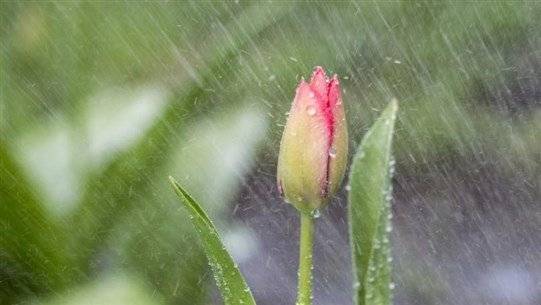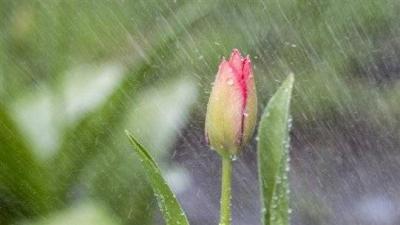We can all recognize the distinctive earthy scent that permeates the air after rainfall, and the cause of this phenomenon has been debated among scientists for decades. This scent we inhale is actually a scientific response to rain following a dry period. Researchers at the Massachusetts Institute of Technology discovered that rain releases an aromatic spray that results in that familiar smell, especially after an extended dry spell. We love this scent because humans are extremely sensitive to an organic compound called "geosmin," which is produced by microbes, including the bacterium genus "Streptomyces." Therefore, what we smell during rainfall is the scent of this chemical compound, known as "geosmin." We can detect geosmin in very small amounts, down to five parts per trillion.
Using high-speed cameras, researchers observed that when a raindrop strikes a porous surface, it traps small air bubbles at the point of contact. Similar to a glass of champagne, the bubbles rise up and eventually burst from the droplet, releasing a puff of aerosol. The researchers believe that in natural environments, this aerosol can carry aromatic elements, along with bacteria and viruses stored in the soil. These elements may be released into the aerosol during light or moderate rain and then spread by wind gusts. However, during heavy rainfall, the smell may be less pronounced as it gets washed away. Assistant Professor of Mechanical Engineering at MIT, Colin R. Boy, stated, "It’s a very common phenomenon, and it was interesting for us that no one had observed this mechanism before." Scientists can also use this evidence to examine soil-borne diseases.




